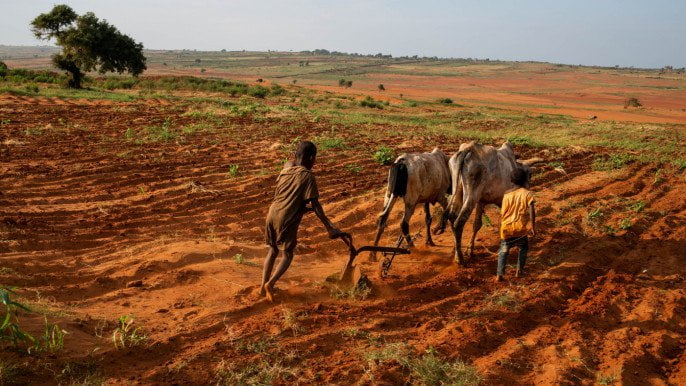That is what victory looks as if inside the Iraqi town of Ramadi: in the as soon as thriving Haji Ziadsquare, no longer a single shape nonetheless stands. delivering every route yields a picture of devastation.
A constructing that housed a pool hall and ice cream stores — decreased to rubble. A row of moneychangers and motorbike repair garages — obliterated, a massive bomb crater in its place. Therectangular‘s Haji Ziad eating place, liked for years by Ramadi citizens for its grilled meats — flattened. The restaurant become so popular its proprietor built a larger, fancier department across the road 3years in the past. That, too, is now a pile of concrete and twisted iron rods.
The destruction extends to almost each part of Ramadi, once home to 1 million humans and now reallyempty. A giant dual carriageway cloverleaf at the principle front to the city is in part toppled.condominium block after condominium block has been crushed. alongside a residential street, thepartitions of homes were shredded away, exposing fixtures and bedding. Graffiti at the few homesnonetheless status warn of explosives inside.
whilst Iraqi government forces sponsored by means of U.S.-led warplanes wrested this metropolis from Islamic state militants after 8 months of IS manipulate, it become heralded as a major victory. but the priceof winning Ramadi has been the metropolis itself.
The scope of the harm is past that in different Iraqi cities recaptured to this point from the jihadi group.snap shots furnished to The related Press via satellite imagery and analytics business enterpriseDigitalGlobe show more than three,000 homes and nearly 400 roads and bridges have been broken or destroyed between can also 2015, when Ramadi fell to IS, and Jan. 22, after most of the preventing had ended. Over more or less the same period, almost 800 civilians have been killed in clashes, airstrikes and executions.
Now the few signs of life are the infantrymen manning checkpoints, newly painted and embellished with brightly coloured plastic plant life. cars choose their way around craters blocking off roads because thedust from lots of overwhelmed buildings drifts over the panorama. alongside one road, the best signthat homes ever existed there’s a line of lawn gates and clusters of fruit timber.
The wreckage turned into because of IS-laid explosives and loads of airstrikes by means of the Iraqi armyand the U.S.-led coalition. besides the fighting itself, the Islamic country group is increasingly the usage of a scorched earth approach because it loses floor in Iraq. while IS fighters withdraw, they leave an empty prize, blowing up homes and wiring lots of others with explosives. The bombs are so highly-pricedand time-eating to defuse that a whole lot of lately liberated Iraq is now unlivable.
“All they go away is rubble,” said Maj. Mohammed Hussein, whose counterterrorism battalion turned intoone of the first to transport into Ramadi. “You can not do anything with rubble.”
As a result, U.S.-led coalition and Iraqi officials are rethinking their methods as they warfare IS to regain territory. The coalition is scaling back its airstrikes in besieged city regions. Efforts are underway to boomschooling of explosive disposal groups.
the new method is in particular key as Iraq and the coalition build up to the daunting assignment of retaking Mosul, Iraq’s 2nd–largest metropolis, held by using IS for nearly two years.
“They recognise they can not simply flip Mosul right into a car parking zone,” said a Western diplomat in Baghdad who has been gift for some of meetings with coalition and Iraqi protection officials concerningthe Mosul operation. The diplomat commented on condition of anonymity due to the fact he turned intonow not legal to speak to the press.
In January, after IS became pushed out of Ramadi, lots of households back to their homes. howeverresidents have when you consider that been barred from coming back because dozens of civilians died from IS booby traps. officials estimate IS planted lots of IEDs, improvised explosive devices, throughoutthe town. Janus global Operations, an American company, began running to dispose of them closingmonth and said it has thus far cleared extra than 1,000 square meters — a fraction of a city block.
The substantial majority of the city‘s population stays displaced.
Ramadi lies at the Euphrates River west of Baghdad and is the capital of Iraq’s Sunni heartland, Anbar province. even as IS swept over maximum of the province and northern Iraq in 2014, Ramadi had held outunderneath tenuous government manage. After months of combating, in may 2015, Islamic nationfighters captured it by using unleashing a barrage of truck and suicide bombs that beaten authoritiesforces.
They raised their flag above Anbar Operations Command center, the previous provincial police and militaryheadquarters that became as soon as a U.S. navy base, then proceeded to in large part degree thecomplex with explosives. Over the following days, they methodically destroyed authorities homes.
Militants took over homes, changing living rooms into command centers and bedrooms into barracks. They dug tunnels under the streets to stay away from air strikes, close down colleges, looted and destroyed thehouses of humans related to the nearby authorities. They installation a headquarters inside the campus of Anbar college, at the town‘s western edge.
Over the path of the 8-month campaign to push IS out of Ramadi, coalition plane dropped greater than six hundred bombs at the city. The strikes focused IS fighters, however also destroyed bridges, homes and roads, the Pentagon has mentioned. government forces seized districts at the outskirts and in Decemberreleased their final attack.
As Iraqi floor forces moved into Ramadi, IS methodically laid explosives and blew up swaths of the town‘s infrastructure. the electrical grid became nearly absolutely destroyed and the city‘s water community wasalso heavily damaged. The jihadis bombed the metropolis‘s last bridges and dams. although most of thepopulation had already left, IS warring parties tightened checkpoints alongside essential roads out of themetropolis to save you civilians from fleeing. They later used households as human shields as they made their escape.
“ISIS made a concerted effort to ensure the town might be unlivable,” said Patrick Martin, an Iraq researcherat the Institute for the examine of struggle.
As his convoy of troops approached Ramadi, Maj. Hussein said he watched IS warring parties set fires in Anbar university to break touchy files. The fires burned for days.
The complex is now largely destroyed. A fitness center used by IS to shop documents has been torched. Charred sports system — a boxing glove, cleats, pieces of a track in shape — line the hallways. Iraqi artillery hearth punched thick holes into the university‘s library. only the two most important readingrooms are secure to visit; the relaxation of the 4–tale constructing is believed to be booby-trapped.
trying to uproot dug-in combatants, coalition plane and Iraqi artillery unleashed devastation. Haji Ziadsquare, for example, is a strategic intersection with lines of sight down principal thoroughfares with the aid of which troops had to technique. So IS opponents deployed closely there. the new multistory Haji Ziad eating place made a prime sniper publish. Iraqi troops called in severe coalition strikes on therectangular to assist clean the militants.
further, a complex of round 40 huge residential towers stood throughout from Anbar college on a keyroute for Iraqi forces coming into the town. before-and-after imagery shows at least a dozen of them werelevelled. more than one bomb craters are obtrusive, together with at least two that measure greater thanforty five feet throughout.
In a district alongside the western fringe of downtown Ramadi, a dense strip of buildings, houses and bustling shops, not a single constructing escaped unscathed from the IS profession and the coalition airstrikes. Key streets for the duration of the city are blocked through craters as every aspect attempted tohamper the other‘s movement.
Tens of lots of Ramadi’s citizens live in camps or with prolonged family in Baghdad. masses of heaps are in other nearby villages. heaps more live in a small hotel city on Habbaniyah Lake south of Ramadi that has become a sprawling camp.
in which Iraqis got here to jet-ski and boat as recently as 2012, the seashore is now coated with tents. The three hundred-room resort and masses of chalets inside the complex are full of humans displaced from Ramadi, Fallujah, Hit and smaller villages throughout Anbar.
Umm Khaled, 30, once lived along with her own family in a two–bed room home in Ramadi’s middle. Now, pregnant with her fourth infant, she lives in a small refuge on the edge of the Habbaniyah inn that her husband built with corrugated steel and plastic tarps.
She said she stored tabs on her Ramadi home when you consider that fleeing years in the past. Thehouse remained undamaged. Then the offensive to retake the city commenced, and he or she heard fromanother fleeing circle of relatives that her home have been hit with the aid of a missile or a bomb. The day the metropolis changed into declared liberated, Umm Khaled stated the camp burst into birthday celebration, kids set off fireworks and younger men danced.
Days later came greater sobering information. Her husband returned to Ramadi to look what was left, and he introduced returned pics on his cellphone.
“It become like there has been not anything. And it’s now not simply our house — the wholeneighborhood,” said Umm Khaled, who did no longer want her complete name used due to the fact she feared for the protection of circle of relatives members nevertheless living beneath IS rule.
without a home to return to and no jobs, her family is compelled to remain in the camp and is dependent on handouts from resource companies. The little coins savings her circle of relatives had becomedepleted months ago, making it not possible to go back to Ramadi and rebuild.
in keeping with the United international locations‘ satellite mapping organization, UNITAR, an expectedfive,seven hundred buildings out of the metropolis‘s total of around 55,000 have been significantlybroken or destroyed.
With an eye to reducing destruction in the fight in opposition to IS transferring forward, coalition planes are the usage of fewer airstrikes and smaller, greater targeted munitions.
In Hit — a small town to the west of Ramadi retaken from IS in April — Iraqi commanders complained that itbecame turning into an increasing number of tough to get requests for airstrikes cleared by usingcoalition forces. Brig. Gen. Sami Khathan al-Aradi stated progress in Hit changed into slower because ofthe decreased airstrikes.
“Our allies have their personal requirements, their personal guidelines,” al-Aradi defined, implying that Iraqi planes would have used airstrikes extra liberally.
Mosul is roughly two-thirds large in region than Ramadi, and some 1 million to one.five million citizens arenevertheless inside the city — a miles better number than those who were in Ramadi as Iraqi forces fought to regain it — putting large numbers in harm‘s way when an attack is launched.
The destruction of Mosul at the identical scale as Ramadi would result no longer simply in billions of greenbacks of harm. It also might risk further alienating the Sunni minority population. lengthyoppressed beneath the Shiite-led central government in Baghdad, a few Sunnis at the beginningwelcomed IS combatants into Mosul and elements of Anbar province. however after months of increasinglybrutal IS rule, the institution‘s assist among Sunnis seems to have eroded.
significant destruction also can spark cycles of revenge assaults within Anbar’s communities, whereintribal law regularly demands death and destruction be repaid in “blood cash.” In Ramadi’s jap edge, localsecurity officers have already begun methodically razing houses of suspected IS sympathizers.
Hamdiya Mahmoud’s own family home was destroyed by IS militants. Amid the rubble that was once her son’s bedroom, she factors to a cloth wardrobe showered with shards of plaster and concrete thatchanged into a present to her son and his wife on their wedding day.
“I did not allow my youngest son pass to high school to save cash to construct this house,” Mahmoudstated, breaking into sobs, “This house is truely valuable to me, it is like considered one of my sons.” Mahmoud stated she might no longer seek revenge for the damage executed to the assets. but as her husband seemed over the ruins of his residence, he became much less forgiving.
“I swear to God,” stated Ali Hussein Jassim, “if I analyze who did this i can now not preserve silent.”





